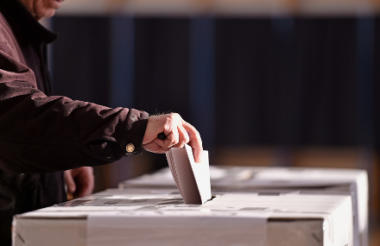Five charities, including Friends of the Earth and Arthritis Research UK, have registered with the Electoral Commission as a non-party campaigners since the snap announcement of a general election.
On 18 April Prime Minister Theresa May announced a general election would take place on 8 June, prompting over 30 organisations to register as non-party campaigners with the Electoral Commission.
Other charities that have signed up with the Commission - which regulates campaigning activity ahead of the election - are Stonewall, Britain Yearly Meeting of the Religious Society of Friends (Quakers) and the League Against Cruel Sports.
Under the Lobbying Act organisations much register if they plan to spend over £20,000 in England, or over £10,000 in Scotland, Wales or Northern Ireland, on campaigning which might reasonably be viewed as intended to influence the result of the election.
The regulated period for spending begins one year before polling day, even when a snap election is called. Registered campaigners also need to report weekly in the six weeks leading up to the election.
Some 31 organisations have registered since the election was announced. This includes a number of trade unions, campaigning groups, such as the More United movement, and some individuals. A community business, One Norbiton, has also registered.
‘Permanent threat’?
Charities have consistently raised concerns about the Lobbying Act’s potential to stifle the sector’s voice.
Greenpeace has described the Lobbying Act as a “permanent threat” and said it is prepared to go to court over the issue. Today the Guardian reports that a chief executive of a social care charity feels “muzzled” by the legislation and unable to speak out on social care plans.
Recently the Electoral Commission fined Greenpeace and Friends of the Earth for breaches of the Lobbying Act during the 2015 election.
But in a blog for NCVO, Ben Wilkinson, head of external communications for the Electoral Commission, said the effect the law has on charities has been “exaggerated” by the press and said that the Electoral Commission will take a “pragmatic and proportionate approach”.
Related articles












